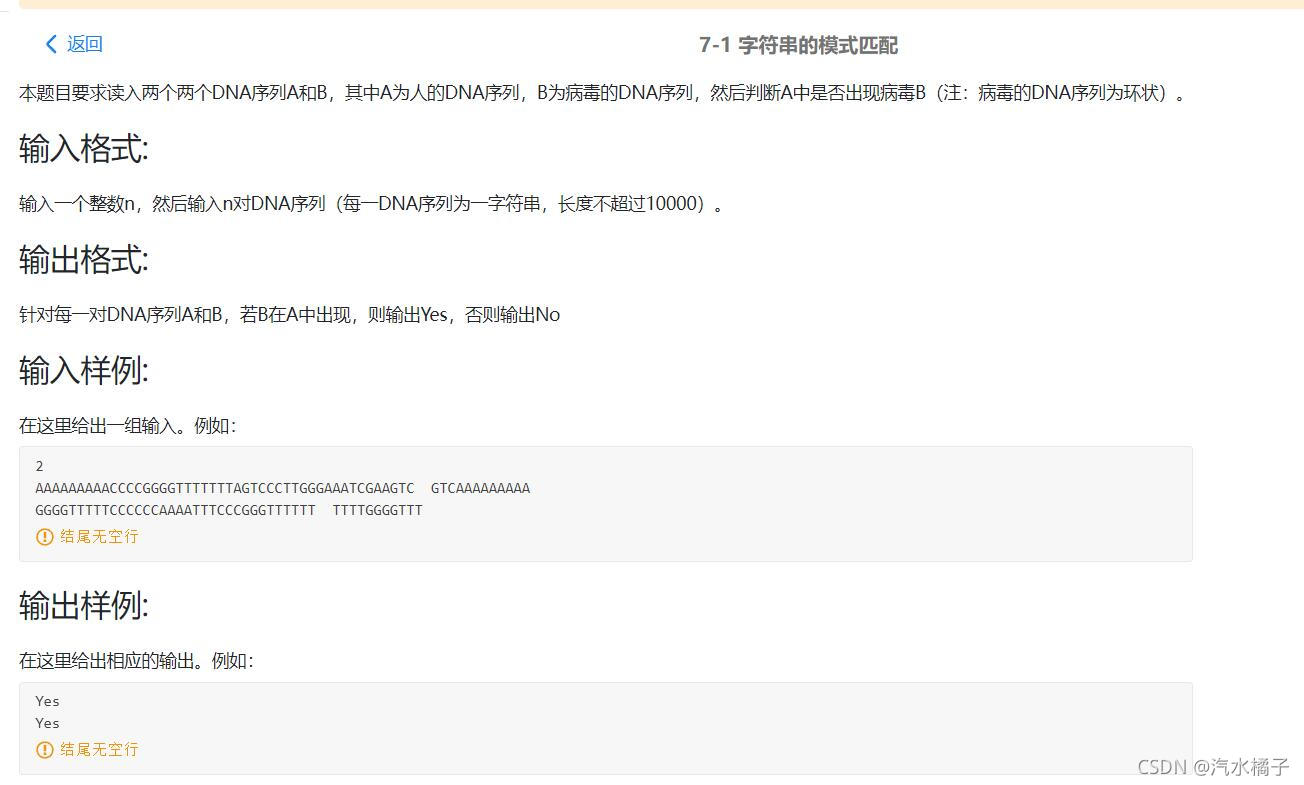
#include<iostream>
#include<string>
#include<cstring>
#include <cstdio>
#define MAXLEN 256
using namespace std;
void GetNextval(char* p,int next[]);
int KmpSearch(char* s, char* p,int next[]);
int main()
{
int n;
cin>>n;
while(n--)
{
char S[MAXLEN];
char t[MAXLEN];
cin>>S>>t;
char s[MAXLEN];
strcpy(s,S);
strcat(s,S);
int next[MAXLEN]={0};
int la=strlen(t);
GetNextval(t,next);
int index=KmpSearch(s, t,next);
if(index!=-1)
{
cout<<"Yes";
}
else
{
cout<<"No";
}
if(n!=0)
cout<<endl;
}
}
//优化过后的next 数组求法
void GetNextval(char* p,int next[])
{
int pLen = strlen(p);
next[0] = -1;
int k = -1;
int j = 0;
while (j < pLen - 1)
{
//p[k]表示前缀,p[j]表示后缀
if (k == -1 || p[j] == p[k])
{
++j;
++k;
//较之前next数组求法,改动在下面4行
if (p[j] != p[k])
next[j] = k; //之前只有这一行
else
//因为不能出现p[j] = p[ next[j ]],所以当出现时需要继续递归,k = next[k] = next[next[k]]
next[j] = next[k];
}
else
{
k = next[k];
}
}
}
int KmpSearch(char* s, char* p,int next[])
{
int i = 0;
int j = 0;
int sLen = strlen(s);
int pLen = strlen(p);
while (i < sLen && j < pLen)
{
//①如果j = -1,或者当前字符匹配成功(即S[i] == P[j]),都令i++,j++
if (j == -1 || s[i] == p[j])
{
i++;
j++;
}
else
{
//②如果j != -1,且当前字符匹配失败(即S[i] != P[j]),则令 i 不变,j = next[j]
//next[j]即为j所对应的next值
j = next[j];
}
}
if (j == pLen)
return i - j;
else
return -1;
}






 本文深入探讨了KMP算法在病毒序列模式匹配中的应用,详细解释了算法原理及其实现过程,通过实例展示了如何利用C++进行编程实现,为生物信息学领域的序列比对提供了一种高效解决方案。
本文深入探讨了KMP算法在病毒序列模式匹配中的应用,详细解释了算法原理及其实现过程,通过实例展示了如何利用C++进行编程实现,为生物信息学领域的序列比对提供了一种高效解决方案。
















 4011
4011

 被折叠的 条评论
为什么被折叠?
被折叠的 条评论
为什么被折叠?








